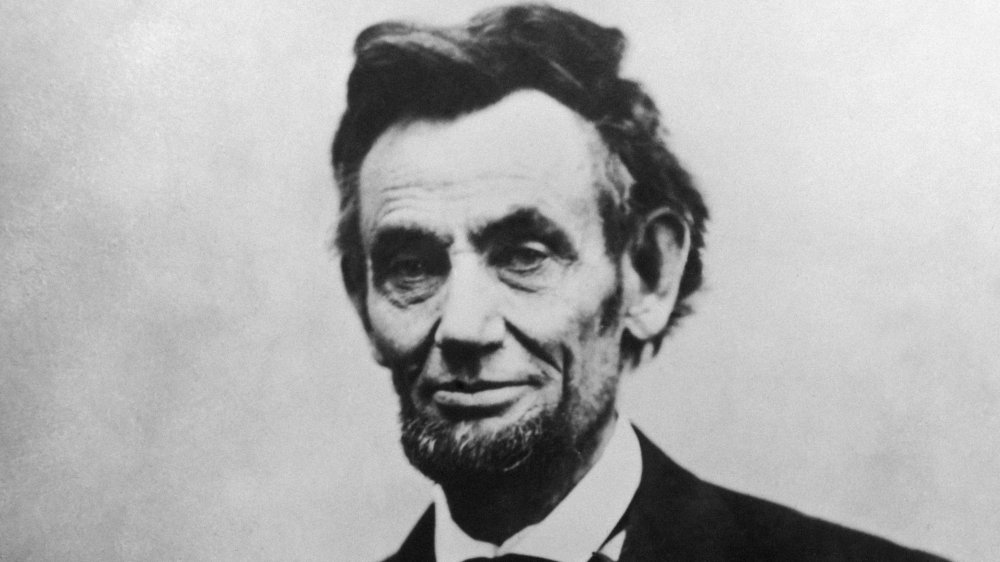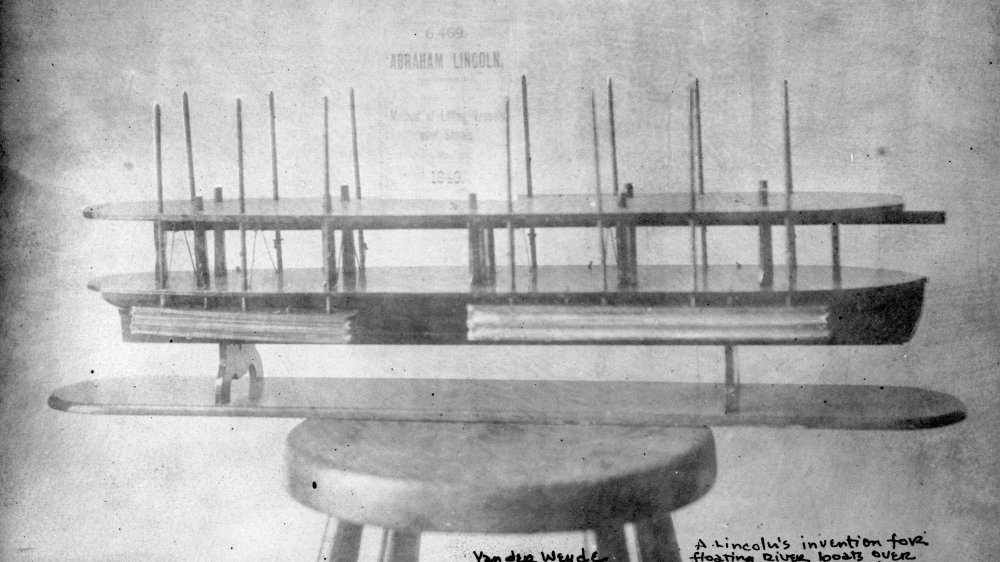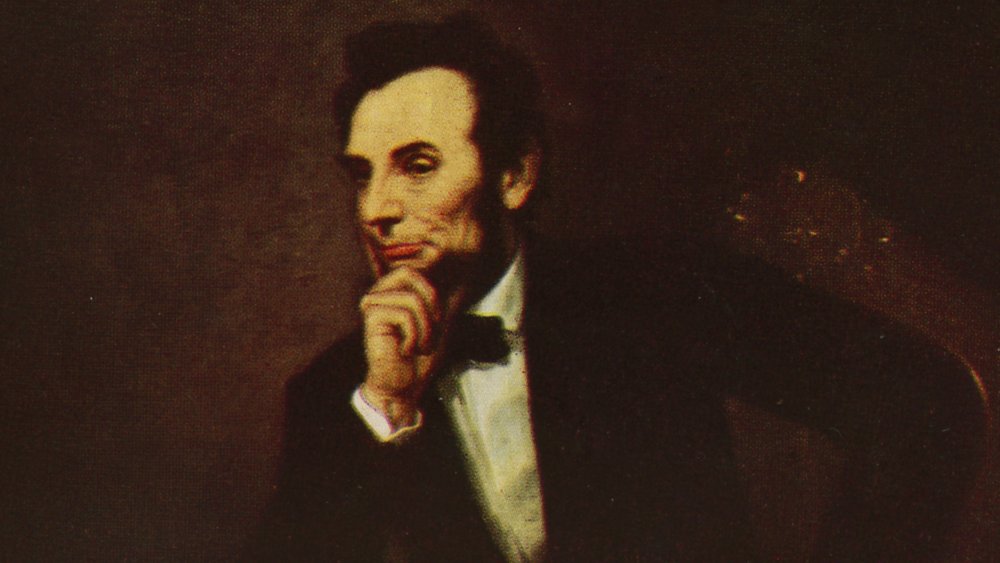The Truth About Abraham Lincoln's Inventions
Abraham Lincoln: honest. A good lawyer. The president who signed the Emancipation Proclamation. But there are many surprising things about Lincoln that you may not know. Lincoln is not just a good politician; he was also something of an inventor, dabbling in mechanical creativity. And he even managed a patent for one of his inventions, said Time Magazine, the first (and so far, only) president to hold a patent.
On May 22, 1849, with the presidency more than a decade away, Lincoln was awarded patent number 6,469 for a new "manner of buoying vessels." Smithsonian Magazine refers to Lincoln's invention a fantastic contribution to transportation technology.
As a child, Lincoln had been fascinated with how things worked. And since he used to go boating as a kid, he realized that he could create something that will help lift boats stuck in shallow waters. Lincoln invented a system for "Buoying Vessels Over Shoals" that involved equipping boats with an inflatable, waterproof fabric. The fabric would be inflated if the craft became stuck in shallow water, enabling the boat to lift itself. Once back in deeper water, the material would be deflated again. Lincoln's idea was for a system of ropes and shafts arranged so that all of the fabric could be inflated at once. The cords also controlled how far down underwater the chambers would be and could work with displacing water to dislodge the boat.
The idea came from experience
Lincoln's idea came from a childhood spent boating around rivers and getting stuck on shoals. How Stuff Works also noted Lincoln had experience working on a couple of cargo ships. Usually, when boats run aground in shallow waters, people and cargo may need to be removed. The idea came to Lincoln when he was involved in a minor boating accident. Time Magazine reported that he was traveling from Massachusetts to Illinois when his boat got stuck in the Great Lakes. The steamboat had hit a sandbar, so the captain decided, instead of making everyone leave the ship, he'd ordered empty barrels to be lashed to the sides of the vessel to help lift it above the sandbar and get it back on track again. Lincoln was struck by this improvised method but felt he could improve upon it.
Once he got back to Illinois, the then-congressman started working on his brilliant invention. He drew up the idea and commissioned a wooden model. When he got back to Washington, D.C., he applied for a patent and was granted it. Smithsonian pointed out Lincoln would not have made the wooden model himself because the nameplate attached to it misspelled his first name as Abram. It's possible he asked a model maker in Washington who was known for assisting inventors. The Smithsonian Museum now owns the model.
He was always thinking of new inventions
Although Lincoln's boat-lifting system was patented, it didn't exactly make him rich, as the invention wasn't ever manufactured. And because no one made it, we'll never know if it could have revolutionized water transportation forever. That didn't stop Lincoln the inventor. According to Smithsonian, Lincoln's law partner at the time, William Herndon, commented that Lincoln was always bent over something mechanical when not working on the law practice. Herndon attributed this trait to Lincoln's father, who also fancied himself a mechanic. Other friends of Lincoln's would also comment on his interest in improving everyday items.
Lincoln's friend Henry Whitney said Lincoln would examine random objects they found in their travels, like a farming implement or a tool, and think of ways to improve it, per Abraham Lincoln Online. He was also very interested in patent law and felt it allowed inventors "for a limited time, the exclusive use of his invention; and thereby added the fuel of interest to the fire of genius, in the discovery and production of new and useful things." To be honest, tools weren't the only things he invented; he also helped inspire the creation of the Secret Service.
He might've been happy taking the time to just invent things, but history had other plans for Lincoln. In the end, he at least got one of his inventions patented, and has the honor of becoming the first (and so far, only) president to ever hold a patent.


